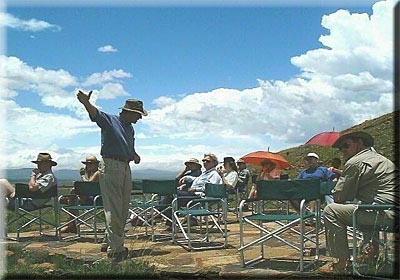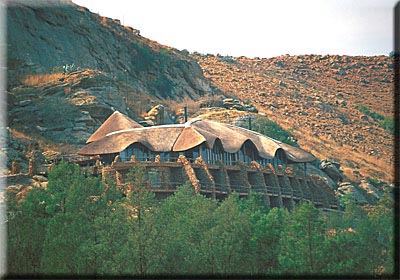THE ANGLO ZULU WAR OF 1879
BY
ROBERT GERRARD FRGS
Part 1
The Anglo Zulu War of 1879 opened with the defeat of the Zulus at iNyezane and ended with the destruction of Zululand, following the British victory at Ulundi, on the 4th July 1879.
The period is awash with household names. It is a story of over-zealous political representatives. Of courage displayed by soldiers and warriors from two Empires thousands of miles apart. The virtual annihilation of a modern British force at ISandlwana. The death of two officers on the Buffalo River whilst trying to save the Queen's Colour. The remarkable defense of Rorke's Drift by a handful of soldiers, who fought for eleven-and-a-half hours against four thousand five hundred Zulus. A modern British army would be besieged. The Prince Imperial of France killed. The Zulu Empire destroyed, their King, Cetshwayo, imprisoned and later transported to England to meet and be hosted to tea by Queen Victoria, and admired by thousands of her subjects.
On the 31st Match 1879, Sir Bartle Frere arrived in the Cape as British High Commissioner and Governor of the Cape, with a mandate to confederate South Africa.
Theophilis Shepstone, the Secretary of Native Affairs in Natal, had crowned Cetshwayo King of the Zulu nation on the 1st September 1873, establishing his royal kraal at oNdini, near present day Ulundi.
By early 1870 Zululand was being surrounded by the expansion of Europeans moving deeper into Africa. The British were to the south, and the Boers, with their Transvaal Republic, to the north.
When Cetshwayo was crowned he introduced reforms aimed at revamping the Zulu army and the traditions that had existed during Shaka's reign. These included the ritual washing of the spears in an enemy's blood prior to being allowed the privilege of marriage. These developments alarmed the white settlers who thought Cetshwayo was preparing for war.
Sir Bartle Frere was determined to fulfill his task of confederation and drew up a nine point, four-thousand word ultimatum, which was submitted to the Zulu King. The most important aspect was that King Cetshwayo had to agree to disband his army within thirty days of the 11th December 1878, failing which Lieutenant General Lord Chelmsford, the Commander of the British Forces in South Africa, would be ordered to invade Zululand with the sole purpose of disbanding the Zulu army.
It was impossible for Cetshwayo to disband his army, so consequently by midnight on the 10th January 1879, when Cetshwayo had not met any of the terms of the ultimatum, Lord Chelmsford was ordered to commence his invasion of Zululand.
Prior to the ultimatum being issued Chelmsford had been told to prepare his Invasion Force. The British invaded Zululand with three large columns. The Coastal Column, commanded by Colonel Pearson, would cross the Thukela River at Fort Pearson and head for Eshowe with 2,700 men. The Central Column of 4,800 men, which was basically commanded by Lord Chelmsford, would invade, crossing the Buffalo River at Rorke's Drift. And the Northern Column, commanded by Colonel Evelyn Wood, would cross the nCome River at Bemba's Kop forty miles north of Rorke's Drift.
On 22nd January 1879 three battles would start, one of which would be over in an hour-and-a-half, leaving eleven British and 350 Zulu dead.
The second battle of the day in all essence started at midday and was fought by the Central Column encamped on the eastern slopes of ISandlwana Mountain. By 1.30pm 1,329 British soldiers lay dead, which was the biggest defeat incurred by the British in south or west Africa.
The third started at 4.30pm following on from the Zulu victory at ISandlwana, and would go down in history as a feat of arms and has become part of the mystique of warfare. 140 British soldiers, in a tiny fortified area constructed in a little over one hour, would defend their position against 4-4,500 Zulus for eleven to eleven-and-a-half hours. Eleven Victoria Crosses and four Distinguished Conduct Medals were awarded.


Rob Gerrard FRGS creating the scene and the atmosphere.............................. ISandlwana Lodge
Rob Gerrard FRGS, the resident historian at ISandlwana Lodge, relates the events of all the battles of the Anglo Zulu War with passion and knowledge as if he had been there. Battles themselves have limited interest, but he brings the characters involved on both sides to life and relating information found in trunks and archives, his audience is spell-bound.
Next Month The Battle of iNyezane
Copyright © Robert J. Gerrard 2003
For permission to use all, or any part, of text, maps or pictures, contact Robert J. Gerrard at foxzulu@saol.com.